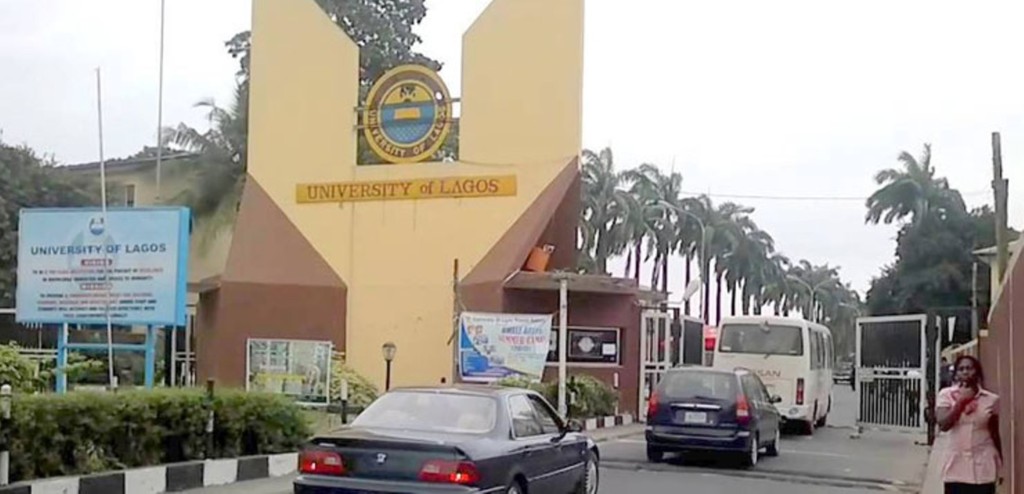
By Douglas Anele
In the publication by the Vice-Chancellor, “Council received and considered C.P. No. 2019/20/3b, which contained the nominees for honorary doctorate degrees at the 51st convocation ceremonies of the university and the proposed budget estimate.” He informed that in line with the ethos and tradition of the University of Lagos, “the dates and programmes of the convocation ceremonies are usually brought to the attention of Council after due clearance of the dates has been received from the supervising ministry, which we did.” Regarding the issue of honorary doctorate degrees, Management complied with extant university guidelines by forwarding its nominees to the Honours Committee of the Senate.
According to Prof. Ogundipe, mindful of the fact that the convocation date was rapidly approaching, he proactively presented to Council at its meeting of January 22, through Council paper CP 2019/20/3b, names of the proposed honourees being considered by the Honours Committee. During extensive deliberation on the matter by Council, Dr. Babalakin directed that Management should ensure that only deserving individuals are honoured. He then proposed the name of late Dr. Stella Ameyo Adadevoh, which was forwarded to the Honours Committee for inclusion as one of the awardees by the Vice-Chancellor. I remember clearly that Dr. Adadevoh’s nomination was unanimously endorsed by Senate members present during one of the meetings when the convocation was discussed.
In addition, Council requested the Vice-Chancellor to liaise “off-line” with Mr. John Momoh, national President of the University of Lagos Alumni Association, “since the next Council meeting would hold just a week before the convocation ceremonies.” Concerning the allegation that the Vice-Chancellor ignored a letter from the Pro-Chancellor pointing out “serious concerns and legal issues” about the convocation, Prof. Ogundipe affirmed that the letter “was sent via email on Friday, February 28, 2020 at 10:28 pm, but not seen until late Saturday afternoon.” Given the issues involved, it was important to discuss them at the Management meeting of March 2, 2020, which coincided with the date already scheduled for the convocation world press conference.While Management was responding to the Pro-Chancellor’s letter, another email from him arrived at 12.38 pm that very day “showing that the matter has been escalated to the Ministry of Education and the NUC.” The Vice-Chancellor’s and Management’s replies to both letters were sent to Dr. Babalakin and also forwarded to both the federal Ministry of Education and NUC immediately. The question now is: Why did the Ministry ignore completely the responses of Prof. Ogundipe and university Management?
The Vice-Chancellor observed that in spite of special appeal by the university’s Senate following its emergency meeting of March 4, 2020 and entreaties by virtually all members of the Council when it met later that day for Dr. Babalakin to contact the regulatory bodies and convince them to allow the convocation ceremonies to go ahead as planned, the latter bluntly refused. In conclusion, Prof. Ogundipe enjoined all stakeholders in the university to always put the University of Lagos first so that through our cooperative efforts we can provide the best for our great university and sustain the culture and tradition that demonstrate why we are number one and eight in Nigeria and Africa respectively.
At this juncture, having presented both sides of the disagreement concerning the botched convocation ceremonies, let us dissect the issues critically and try to identify the lessons that can be distilled from the unfortunate event. For starters, it is necessary to point out that the regrettable postponement of the convocation was due to the frosty relationship or infighting between the university Management led by the Vice-Chancellor, Prof. Ogundipe, and the Governing Council chaired by the Pro-Chancellor, Dr. Wale Babalakin. It really has little to do with the claim that there was no authorisation from Council for the programme. But I cannot say for sure that the two gentlemen do not see eye to eye at the personal level and, if so, whether the frosty relationship referred to above is a reflection of personal animosity between them.
READ ALSO: Coronavirus: Italy’s death toll shoots past 10,000
Whatever might be the case, the relevant question to ask is this: What are the roles assigned by the University of Lagos Act to the Pro-Chancellor, Vice-Chancellor and the Senate in organising convocation ceremonies? I have read the Act, and there is no explicit delineation of the functions of the Pro-Chancellor and Vice-Chancellor therein. However, certain provisions of the Act provide reasonable guide both to the university Management and Governing Council on the issue.
For instance, Section 6 (2) provides that “The Pro-Chancellor shall, in relation to the university, take precedence before all other members of the university except the Chancellor and the Vice-Chancellor when acting as Chairman of congregation or convocation and except the Deputy Vice-Chancellor when so acting; and the Pro-Chancellor shall, when he is present, be the chairman at all meetings of the Council.” Section 7 (1) of the act empowers the Council to be in charge of the “general control and superintendence of the policy, finances and property of the university, including its public relations.”
Section 8 (2c & d) vests on the Senate the power to award degrees and such other qualifications as may be prescribed in connection with examinations held as aforesaid; the making of recommendations to Council with respect to the award to any person of an honorary fellowship or honorary degree or the title of professor emeritus. In addition, Section 9(2) proclaims that “Subject to Sections 7 and 8 of this Act, relating to the Visitor, the Vice-Chancellor shall to the exclusion of any other person or authority have the general function, in addition to any other functions conferred on him by this Act or otherwise, of directing the activities of the university, and shall be the chief executive and academic officer of the university and ex-officio chairman of the Senate.” Reading all these provisions together, the Act envisages that the Vice-Chancellor and the Senate should play more prominent roles in putting together convocation ceremonies than the Pro-Chancellor.
I confirm that the Vice-Chancellor scrupulously followed existing regulations regarding the role of the Senate in the programme, being present at Senate meetings when it was discussed. Dr. Babalakin’s claim that the programme was not authorised by the Council is perplexing. I participated in the Senate meetings where different aspects of the ill-fated convocation were debated thoroughly. How reasonable is the claim that Council was not carried along if during one of its meetings in January the Pro-Chancellor requested that Dr. Adadevoh should receive a posthumous honorary doctorate degree during the convocation? Would he have made the recommendation without any information about details of the programme?
Now, it is strange that, according to the release by the Council on March 9, 2020, the convocation budget was the only item formally brought to the special meeting held on January 21 and 22, bearing in mind that the Pro-Chancellor had declared that all matters relating to the ceremony shall be considered at the Council meeting of January 22, 2020, and also when it is obvious that the ceremony, which involves demanding coordination of different components, was a very important item on the agenda of the meeting. Moreover, it is difficult to believe that the Council deliberated on the budget, proposed convocation lecturer, and Senate’s recommendation for the award of honorary doctorate degrees without looking into other details of the event. Accordingly, any open-minded person who reads the “University of Lagos Council Resolutions” and the Vice-Chancellor’s rebuttal would recognise that the latter has more verisimilitude than the former, because it definitely does not make sense to discuss certain critical aspects of the convocation (the budget, convocation lecturer, and honourees) without having an idea of the activities earmarked for the occasion and the exact dates it would take place. In any case, there is no provision in the University of Lagos Act which stipulates that Management must receive special authorisation from the Council to organise convocation ceremonies and how such request should be made. At any rate, even if the Pro-Chancellor had complaints about the way the Vice-Chancellor and his team were handling the programme or for whatever reason was not satisfied with what was going on and wanted the regulatory authorities to intervene, must he act unilaterally without approval from a properly constituted Council meeting? Or is the Chairman identical with the Council?
To be concluded.
The post The audacity of power and fetishism of due process (2) appeared first on Vanguard News.
https://ift.tt/2QNquWP by Emmanuel Okogba via Vanguard News Albert Einstein Fools of Fortune

Comments
Post a Comment